HSBC shares rise after £1.5bn buyback pledge
Plan takes total returned to investors in past three years to more than $25bn
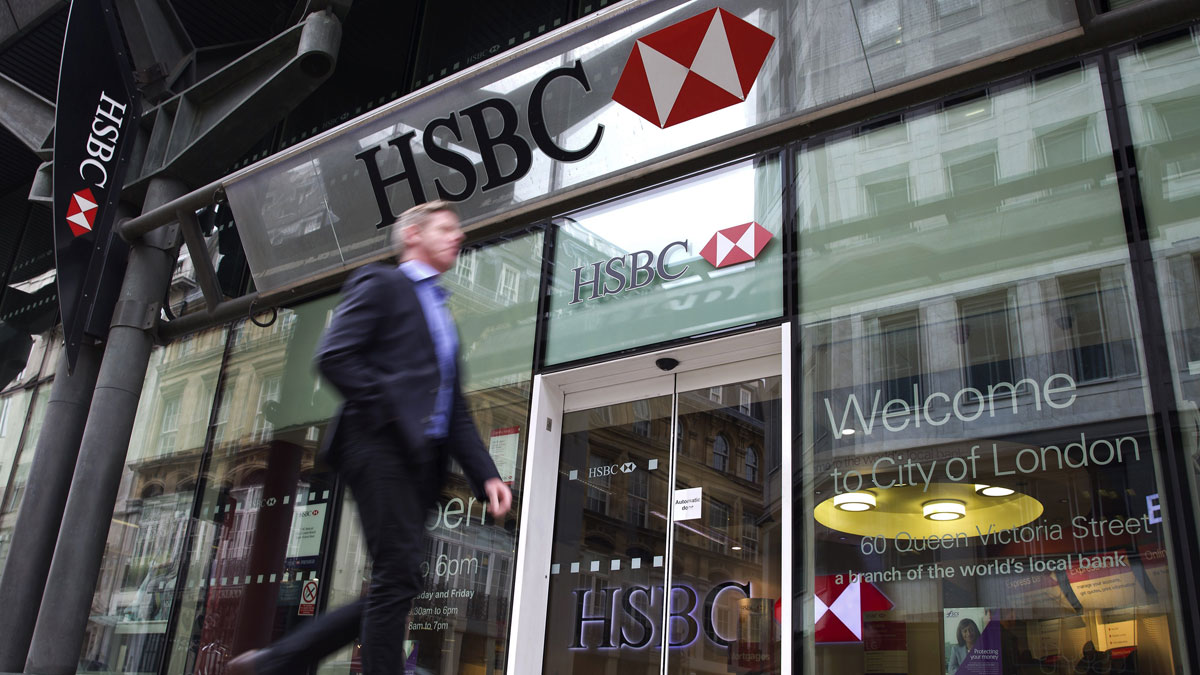
A free daily email with the biggest news stories of the day – and the best features from TheWeek.com
You are now subscribed
Your newsletter sign-up was successful
HSBC: after declaring love for London, the backlash begins
16 February
There was plenty of discussion about "sighs of relief" at the Treasury yesterday over HSBC's decision to stay put in London. But has the forensic – and highly public – ten-month assessment of alternatives for its global headquarters actually done more harm than good?
"In recognising that the UK is the least-bad country in which to base a bank, HSBC has opened the way for those who want the sector to be shown less leniency," says Tim Wallace in the Daily Telegraph.
The Week
Escape your echo chamber. Get the facts behind the news, plus analysis from multiple perspectives.

Sign up for The Week's Free Newsletters
From our morning news briefing to a weekly Good News Newsletter, get the best of The Week delivered directly to your inbox.
From our morning news briefing to a weekly Good News Newsletter, get the best of The Week delivered directly to your inbox.
He points out that immediately following the announcement, both John Vickers, the architect of recommendations to protect taxpayers from potential future bank bail-outs, and Vince Cable, the former business secretary, spoke about what they see as weak regulatory intervention in the UK that has been watered down from earlier proposals.
The broad criticism is summed up in The Guardian by Prem Sikka, the professor of accounting at the University of Essex, who writes that HSBC, as any global bank, would never have actually left the UK, "a cosy jurisdiction with feather-duster regulation and prosecutions as rare as hen's teeth".
The academic highlights the far more numerous and severe fines handed down for myriad past bank wrongdoing in the US and the more stringent prosecutions of bankers in smaller countries such as Iceland, where 29 have been sent to jail for their role in the financial crisis, compared to not one in the UK.
He might have added that on the heels of the HQ review being announced last year, Chancellor George Osborne revised a bank levy that would have hit international banks such as HSBC hard. Elsewhere, regulators eased some of the more onerous proposals in new rules for banks and their senior executives, including removing a presumption of guilt.
A free daily email with the biggest news stories of the day – and the best features from TheWeek.com
"If HSBC is, as one assumes it must be, several billion pounds better off staying in the UK (why stay otherwise?), there will be many who argue it should spend a good portion of that money in the form of higher taxes or by building up its equity buffers," Wallace writes in the Telegraph. "After all, it can hardly now turn tail and scarper to another country."
As for the reception in the bank's most profitable market, China, where is was viewing Hong Kong as a possible location, the consequences might also be significant.
"The Chinese authorities were keen for the bank to move back to Hong Kong, as it would burnish the Communist Party’s pro-business credentials," says Wallace. "So, by raising the possibility of returning and then rejecting Chinese governance, the bank has needlessly risked damaging a vital relationship."
HSBC to keep its headquarters in London
15 February
Financial giant HSBC is to keep its headquarters in the UK following a lengthy review into whether to move elsewhere.
The decision comes after George Osborne reduced the banking levy, the tax he charges on its balance sheet, but the bank has denied it forced the Chancellor's hand.
Opting to stay in London is a major vote of confidence in the UK, says the BBC. HSBC said it had decided unanimously against the move because the capital offers "the best outcome for our customers and shareholders".
Although it has been based in the UK since 1993, the bank makes most of its money overseas.
The banking levy, which was introduced in 2011, applied to HSBC's international balance sheet and it has been paying around £1bn a year.
Last June, HSBC warned it might quit the UK, citing the levy as a significant factor.
In his summer Budget a few weeks later, The Guardian reported, Osborne announced the tax would now only apply domestically.
HSBC's chairman, Douglas Flint, told the BBC it was "important that there was a change in the scope of the levy".
He added: "A levy based on an international balance sheet was a disincentive for a global group and we made that point ever since the start of the levy. It was good to see that the scope of the levy changed to being a domestic impost and that was important."
But Flint denied the bank had forced the government's hand to reduce the levy. He said: "We had no negotiation with the government.
"The government was well aware of our view and, indeed, the view of many other people who commented upon it. But there certainly was no pressure put, or negotiation."
The decision may also reflect fears about the difficulties of moving HSBC to China - one of its alternatives - where the central bank has been "causing nervousness among investors and volatility in the markets after intervening in the stock and currency markets", says the BBC's Kamal Ahmed.
It may also show that the possibility of the UK leaving the European Union did not outweigh London's attractions to the bank, he adds.
HSBC's Hong Kong-listed shares were up four per cent when the markets closed this morning.
HSBC sued by relatives of Mexican cartels' murder victims
10 February
HSBC's latest legal headache stems from an unlikely source – one that dredges up its role in money laundering by some of the world's most nefarious criminal groups.
Relatives of a number of US victims murdered by Mexican drug gangs back in 2010 have filed a lawsuit against the bank, the Financial Times reports. They allege the bank "materially supported" the acts and thus can be held financially liable.
The claim states that without the cartels being able to launder money through the bank's network, their activities would have been "substantially impeded".
In 2012, HSBC agreed a massive settlement of $1.9bn (£1.3bn) with US authorities for permitting more than $880m (£608m) worth of drug-trafficking money to be processed through its accounts and branches to the extent it was seen as the "preferred financial institution for drug cartels and money launderers".
However, it is a far cry from this to being held responsible for the murder of Rafael Morales Valencia, who was abducted on his wedding day and, along with his uncle and brother, tortured and asphyxiated by the Sinaloa cartel. Or for the shooting of Lesley Enriquez Redelfs, an employee of the US consulate office in the border city Juarez, and her husband by members of the Juárez cartel after leaving a children's birthday party.
The plaintiffs are seeking to apply the provisions of the US Anti-Terrorism Act, which says survivors of those killed in terrorist incidents may sue for damages. "However, none of Mexico’s handful of drug syndicates are presently officially classified as terrorist organisations," the FT notes, and in any case, proving the bank had knowledge of activities and was therefore culpable will be difficult.
In its admissions, HSBC has acknowledged compliance failings and not acting on so-called "red flags". A spokesman said the bank is "committed to combating financial crime" and will vigorously defend itself against the lawsuit.
Elsewhere, its money laundering failings are in the press amid a legal wrangle over a report by independent monitors assessing its compliance with the terms of its settlement. The New York Post says a disgruntled mortgage client, who claims material in the report is relevant to his dispute, has succeeded in persuading a US judge to make it public.
HSBC secured a concession in the form of a two-week extension to redact the report – and allow time for an appeal to be heard against the judge's decision brought by both the bank and the US Department of Justice.
Penalty brings HSBC's shares close to seven-year low
08 February
HSBC shares dived more than three per cent this morning, to reach a near seven-year low following the latest financial penalty for past wrongdoing.
On Friday, after the market closed in London, the group revealed it had become the latest bank to agree a settlement with US regulators and state administrations over boom-era mortgage activity. Sky News says HSBC will pay $470m (£325m), comprised more than $100m in fines and $370m in compensation for borrowers, most of whom lost their home during the crisis.
The deal also requires the bank to "improve standards for how it services loans and handles foreclosures".
The bank is not the first to settle over the mortgage-lending practices seen as lying behind the financial crash: Citibank, Ally Bank, Wells Fargo, Bank of America and JPMorgan Chase have all previously agreed to pay a combined $25bn.
HSBC said it would cover the costs from provisions it has already made, meaning it should not have a negative effect on profits or investor payouts.
However, the stock still slumped this morning, hitting a session low of 439p that marked the lowest intraday price since April 2009. Along with other UK banks, HSBC shares are falling right now as storm clouds gather over the economy and fears grow of more charges for the likes of payment protection insurance mis-selling.
The bank's full-year results, which will reveal any new penalties as well as the dividends investors can expect, are due on 22 February. This is also when the market expects it to announce whether or not it is keeping its headquarters in the UK, settling another major source of uncertainty for shareholders. Alternatives under consideration include Hong Kong, Frankfurt and Toronto.
According to both the Daily Telegraph and the Sunday Times, the bank is widely expected to confirm it is remaining in London, reflecting the improved situation after the government eased a profit levy on big banks and regulators stepped back from particularly onerous new rules for bankers. By all accounts, this is by no means a done deal, though.
"A faction in the HSBC boardroom is understood still to be pushing for a move abroad, according to a source close to the lender," says the Sunday Times. "But it is thought that a majority of board members are in favour of staying."
HSBC in pay and hiring freeze to cut costs
01 February
HSBC has confirmed it will freeze pay and recruitment in 2016, the latest move in its efforts to cut costs around the world.
Reuters first reported the decision, citing an email that was sent to staff on Friday, and a spokesperson for the bank later confirmed it, saying it was part of plans announced publicly in an investor update last year that outlined billions of pounds of cuts from its global cost base by the end next year.
The June update revealed HSBC would slash $5bn (£3.5bn) in costs by 2017, the BBC says. This was to include the loss of 8,000 of its 48,000 staff in the UK and a drop of 25,000 globally, in what broadly amounted to a "pivot" to Asia to take advantage of fast-growing developing economies in the region.
A hiring freeze would result in a reduction in headcount - those leaving the business will not be replaced unless their post is deemed too critical to lose – while freezing pay should reduce wage overheads as a proportion of earnings due to inflationary increases in charges.
The shift in focus to Asia prompted speculation that the bank's well-publicised head-office review would lead to a move to Hong Kong, where HSBC had been based before taking over Midland Bank in 1992 and moving to London. Since then, cities such as Toronto, in Canada, have come into the frame as a potential site for its headquarters, although remaining in the UK has been made more attractive following a softening of regulatory and tax changes.
A meeting of the HSBC board that was expected to finalise a decision was supposed to have taken place late last week. There have been rumours that if a final verdict was reached, it could be announced ahead of the bank's annual results in late February.
-
 The Olympic timekeepers keeping the Games on track
The Olympic timekeepers keeping the Games on trackUnder the Radar Swiss watchmaking giant Omega has been at the finish line of every Olympic Games for nearly 100 years
-
 Will increasing tensions with Iran boil over into war?
Will increasing tensions with Iran boil over into war?Today’s Big Question President Donald Trump has recently been threatening the country
-
 Corruption: The spy sheikh and the president
Corruption: The spy sheikh and the presidentFeature Trump is at the center of another scandal
-
 The Silicon Valley Bank collapse
The Silicon Valley Bank collapsefeature Sudden failure of tech sector’s go-to bank sparks fears of wider contagion
-
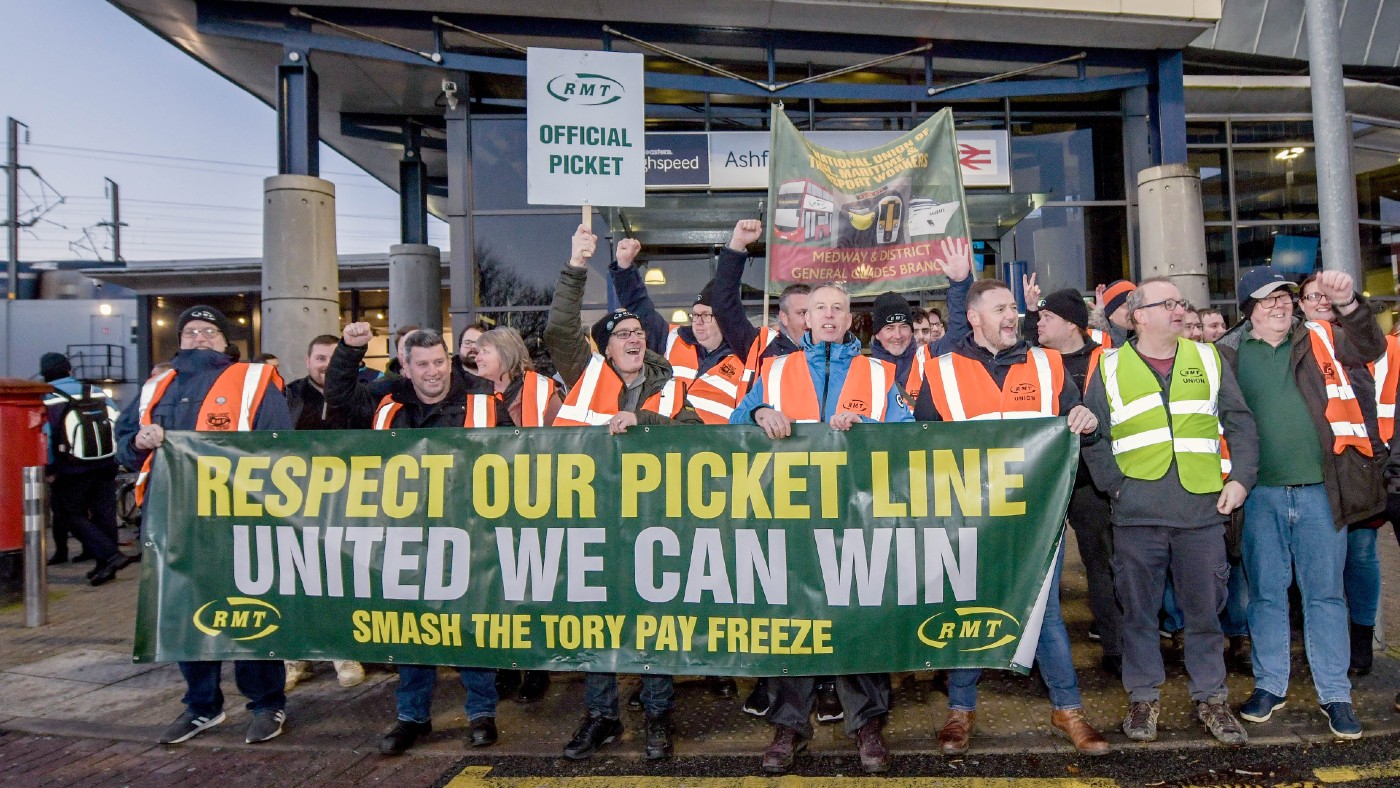 Minimum service levels and the right to strike
Minimum service levels and the right to strikeTalking Point Government’s proposed anti-strike laws will soon be debated by MPs
-
 Unions of all kinds are flexing their muscles. Should we be celebrating?
Unions of all kinds are flexing their muscles. Should we be celebrating?feature New Unite union boss Sharon Graham has promised to make every UK workplace ‘action ready’ and vowed to take on Amazon
-
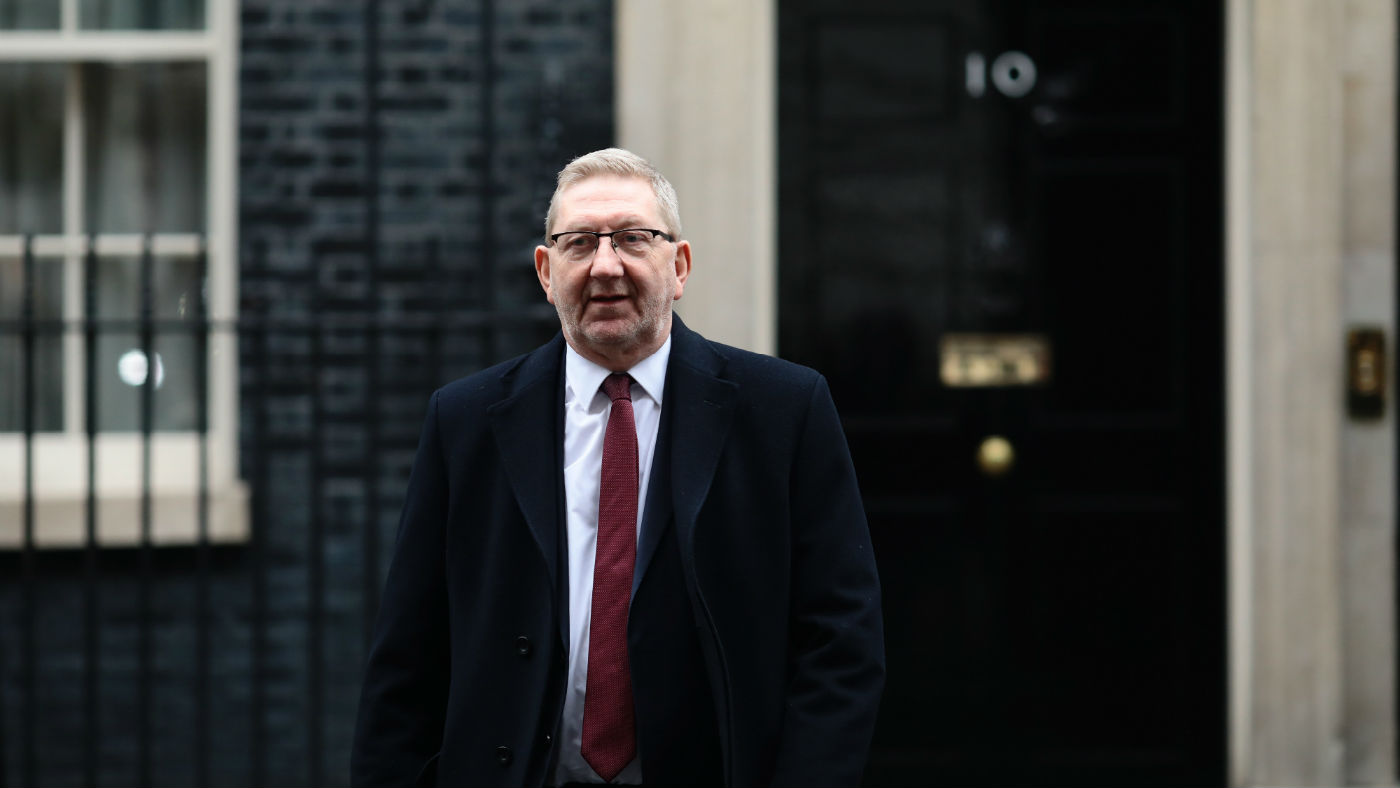 Unite: extend furlough scheme now or ‘redundancy floodgates will open’
Unite: extend furlough scheme now or ‘redundancy floodgates will open’Speed Read Union calls for immediate government action to save workers and business from ‘cliff edge’
-
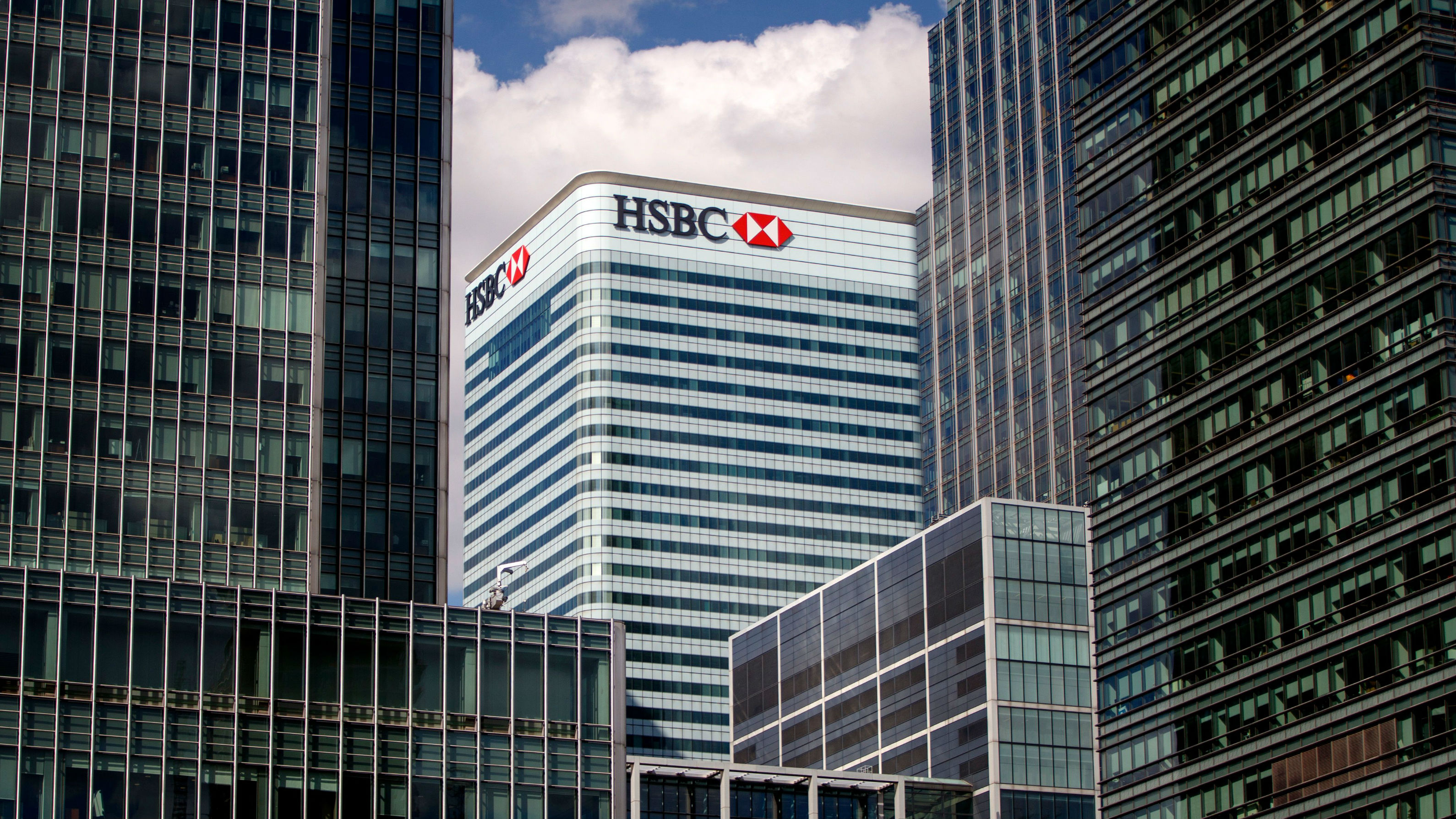 HSBC to cut 35,000 jobs: why profits plunged
HSBC to cut 35,000 jobs: why profits plungedIn Depth British bank announces 33% drop in profits and plans to slash branches in US
-
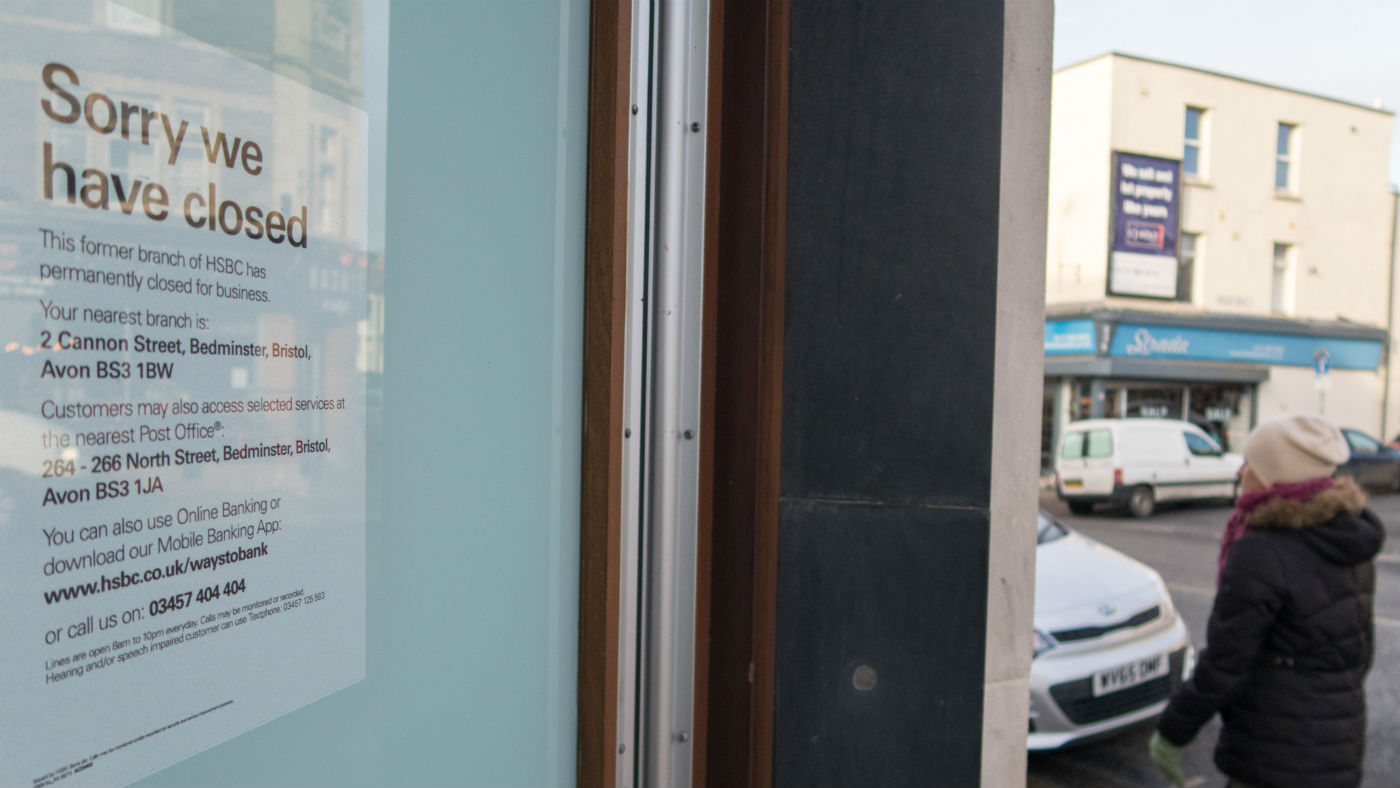 Could ‘banking hubs’ solve problem of branch closures?
Could ‘banking hubs’ solve problem of branch closures?Speed Read MPs fear large sections of society could face ‘financial exclusion’
-
 What is Britain’s worst bank?
What is Britain’s worst bank?Speed Read Royal Bank of Scotland comes joint-bottom in the new personal banking league table, and last for business banking
-
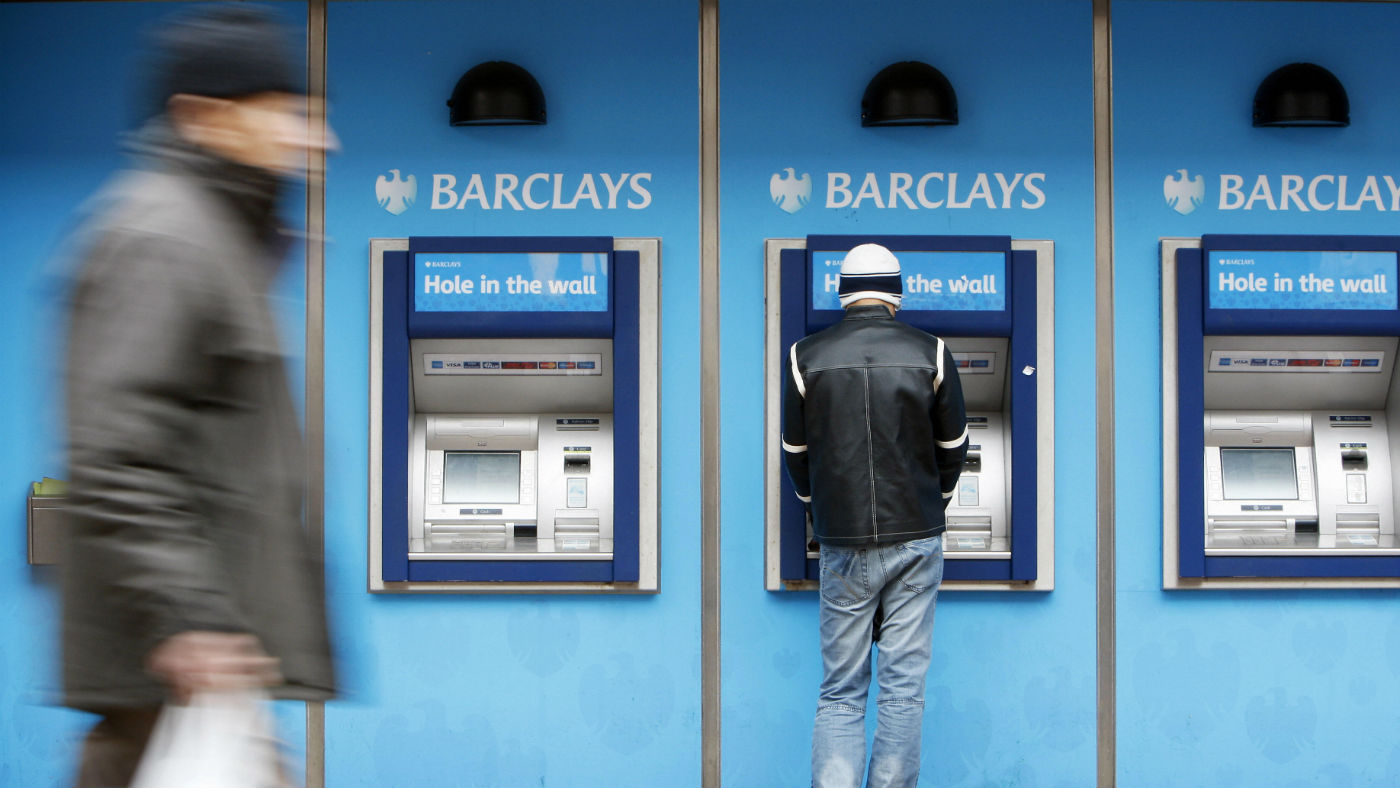 FBI warns cash machine global cyber-attack imminent
FBI warns cash machine global cyber-attack imminentSpeed Read British banks have been warned their ATMs could be mass-hacked by cyber criminals ‘in the coming days’